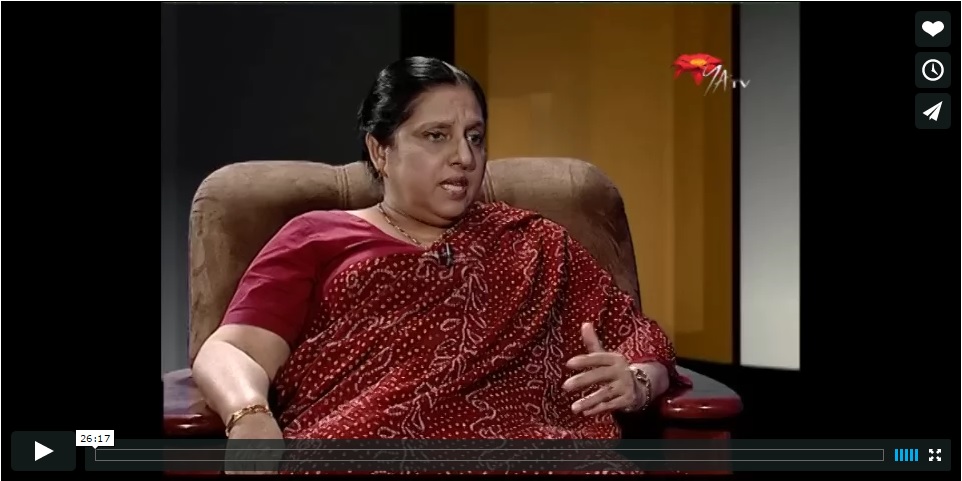Groundviews interview: Dr. Nimalka Fernando, IMADR president, talks her human rights journey
October 11, 2014
Dr. Nimalka Fernando, IMADR president, shared her committment and life-long struggles to ensure the protection and promotion of human rights in Sri Lanka, at the interview by Groundviews.
 _____Click the image to watch the video
_____Click the image to watch the video
———
In conversation with Nimalka Fernando: Life as an activist in Sri Lanka (Groundviews, 10/10/2014)
Nimalka Fernando is one of Sri Lanka’s best known human rights activists and the President of the International Movement Against All Forms of Discrimination and Racism (IMADR). Nimalka’s activism has in recent years generated violent pushback from the Government – prime time radio programmes on State owned channels have openly and with impunity discussed ways to silence her permanently, and high ranking members of Parliament have threatened her, and other leading activists, with bodily harm.
We begin our conversation looking at how Nimalka began her life as an activist, from her days at Bishops College and work in the Student Christian Movement. Asked whether, looking back at her life, she has any regrets, Nimalka says the only one is that she should have had a daughter!
Several years ago, Nimalka noted that Sri Lanka is a classic example of a failed state. She is asked whether post-war, she believes the same, and how many people in the country also believe that the country today is a failed state.
Referring in particular to the State radio broadcast which discussed ways to silence her, Nimakla is asked why her work and activism generates so much of hate, so frequently. Following from this, and in light of what she has had to personally and professionally endure, Nimalka is asked how she can inspire a younger generation to take up human rights advocacy and activism.
We go on to talk about the current UN investigations into allegations of war crimes, and given the hostility towards it from government and the general ignorance around it in the South, whether it has any potential to strengthen reconciliation in post-war Sri Lanka.
Focusing on the internal strife in civil society, and the fact that human rights NGOs in Sri Lanka don’t and can’t often work together around shared goals, Nimalka is asked how and to what degree, moving forward, they can really help in articulating a democratic alternative to the status quo. Following from this, she is asked whether it can be seen as a failure of civil society to engender and sustain a critical mass in support of human rights and democracy (referring to the oft quoted ‘silent majority’).
Nimalka ends the conversation by focussing on Mahinda Rajapaksa the politician and activist, with whom she interacted closely in the past and Mahinda Rajapaksa the President, and what led to the dramatic change between the two public personae.
Related Content

Newsletter E-CONNECT No.40 is out

Newsletter E-CONNECT No.39 is out

Newsletter E-CONNECT No.38 is out


